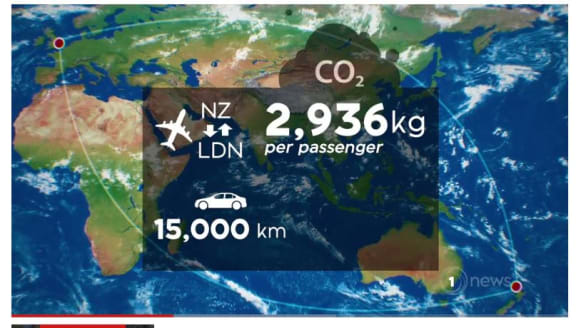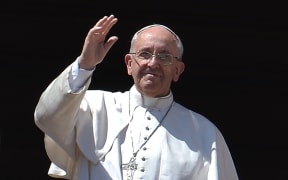Flygskam is rapidly replacing hygge as the media's favourite Scandinavian word. But whereas hygge introduced the world to the warm and fuzzy Danish concept of feeling good due to the simple pleasures in life, the Swedish word flygskam - or flight shame - is all about bringing your holiday ambitions down to earth.
Back in April Public Radio International reported that Swedish opera singer Malena Ernman - better known as the mother of teenage activist Greta Thurnberg - turned down a trip to New Zealand due to environmental concerns.

Malena Ernman Photo: Wiki Commons
The report focused on Sweden's Flygskam movement which is being credited with an eight percent drop in the number of Swedes flying so far this year. (And an 8 percent increase in train travel.)
In the last couple of months the NZ Herald, Stuff and RNZ have all run stories mentioning flygskam (pronounced fleegskaam.)
Last Sunday RNZ's Jim Mora ran a follow-up interview with British climate researcher Roger Tyers – who travelled to Beijing on the Trans-Siberian railway for environmental reasons.
"I spent three years of doing a PhD looking at emissions from flying. I didn't feel comfortable on doing a research trip, which is about environmental behaviours, and flying to China to do it," Tyers said.
And last week TVNZ took up the flygskam zeitgeist with a report in its Being a Better Consumer series.

Photo: Screen shot: TVNZ
The report, by journalist Jenny Suo, left viewers in no doubt as to the significance of tourism's contribution to carbon emissions - fully eight percent of total emissions world-wide.
But the advice being given would have been music to the ears of the world's airlines and the tourism industry in general.
"In less developed places like the Pacific islands, which struggle to process too much waste, live and eat like a local. Bring a keep-cup and avoid plastic... If you're flying choose and airline with modern aircraft and off-set your carbon emissions. In some cases it's just a couple of extra dollars."

Photo: Screen shot: TVNZ
If only Greta’s mum – Malena Ernman had thought of that. According to Air New Zealand’s on-line carbon calculator it would have cost her just $61.60 to off-set the 2718 kg of carbon produced by a single passenger travelling return from Stockholm to Auckland.
But of course the Flygskam movement doesn’t buy into the idea that planting trees and flying somehow cancel each other out. Just as you can fly without buying off-sets you can plant trees without taking to the skies.
They’re not alone in questioning the assumptions behind off-setting.
Deutche Welle recently quoted Pope Francis as saying if you follow the logic of offsetting you would try and deal with the curse of war by forcing munitions manufacturers to build hospitals for the victims of their bombs.

Photo: AFP
Pope Francis view will be informed by the centuries old debate over whether the Catholic Church’s practice of allowing people to buy indulgences during the Middle Ages contributed to an increase in sin.
There’s no shortage of academic articles on the topic with the majority concluding it did – but there are dissenters.
In a paper titled: The Economics of Religious Indulgences economists Alberto Cassone and Carla Marchese conclude given the right conditions indulgences don’t necessarily encourage sin.
And the promoters of offsetting are no doubt banking on that being the case – but the evidence is sketchy.
In Offsetting Green Guilt Yale University economist Matthew Kotchen wrote that carbon offsets pose interesting new areas for economists to study – namely: "Could voluntary carbon offsets, like indulgences of yor, actually increase people’s gas-guzzling, energy consuming ways?"
Matthew Kotchen concluded: “My own view is that purchasing offsets is better than nothing… Yet when considering ways to reduce your own carbon foot-print, you should compare offsetting to the more certain alternative of directly reducing your emissions… Reduce what you can, offset what you can’t."
And if New Zealanders take up that advice and cut back on air travel like the Swedes have it won't be just environmental reporters talking about flygskam - it'll be all over the business pages as well.

